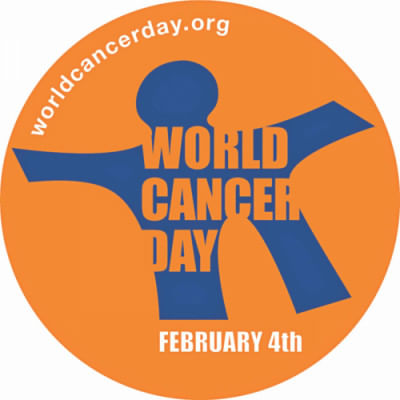Proper diet can help fight cancer

Cancer treatments are designed to kill cancer cells, but can also damage healthy cells, which can lead to eating problems. Common eating problem during cancer treatment include appetite loss, change in sense of taste and smell, constipation, diarrhoea (caused by radiation therapy), bloating, cramps, dry mouth (chemotherapy and radiation therapy can damage the gland that makes saliva which ultimately causes dry mouth), lactose intolerance caused by radiation therapy, nausea, sore mouth, sore throat and trouble swallowing, vomiting, weight gain, and weight loss.
High fat diet has been associated with cancer of the uterus, breast, prostate and colon. The regular excessive intake of kcal is associated with cancer of the gallbladder and endometrium.
On the positive side, diet rich in fiber helps to protect against colorectal cancer. Vitamin C-rich food may protect against the cancer of stomach and oesophagus. Vitamin A and carotene may protect against cancer of lung, bladder and larynx. Fruits and vegetables have abundance of phytochemicals, so it is advised to eat five or more servings of fruits and vegetables per day. Legumes such as soybean, dried bean and lentils may protect against cancer. High intakes of soy foods are associated with a decreased risk of breast and colon cancer. Carrots, tomato and other food rich in carotene and lycopene may reduce the risk of ovarian cancer.
One of the first indications of cancer is unexplained weight loss because the tumour cells use for their own development the nutrients that the host has taken in. Loss of muscle tissue and hypo albuminea with anaemia. Cancer patients become satiated earlier than normal, because of decreased digestive secretion.
Despite their nutritional need, anorexia is a major problem for cancer patients. It is particularly difficult to combat because cancer patients tend to develop strong food aversions that are thought to be caused by the effect of chemotherapy. So it is preferable that chemotherapy be withheld for 2 or 3 hours before and after meals.
Kilocalorie needs will vary from patient to patient. But 45 to 50 kilocalorie/kg body weight may be recommended. Carbohydrate and fat will be needed to provide this energy. Cancer causes an increase in the metabolic rate, and the tissues must be rebuilt; the nutrients lost to the cancer must be replaced. Patients on high protein and high kilocalorie diet tolerate the side effects of therapy and higher doses of drugs better. Patients with good nutritional status will need from 1 to 1.2gm of protein per kg of body weight. Malnourished patients may need from 1.3 to 2.0gm of protein/kg body weight/day. Vitamin and minerals are essential for metabolism and tissue maintenance. The recommendation is to eliminate vitamin A and vitamin E in supplemental form which may prevent cancer cells from self-destructing and work against cancer therapy. Fluids are important to help the kidney eliminate the metabolic waste and the toxins of the drugs. Several small meals are better than 3 large meals. It is preferable to serve the nutritionally richer meal early in the day because the patient is less tired and may have a better appetite at that time.
Some common suggestions for patients:
- Eat the food that you can, even if it is only one or two times.
- Do not worry if you cannot eat at all some days. Start eating when you can.
- Drink plenty of liquids. It is even more important to get plenty to drink on days when you cannot eat.
- Special care should be given in the way you handle and prepare food.
- Scrub all raw fruits and vegetables before you eat.
- Sip only small amounts of liquid during meals.
- Have a large drink at least 30 minutes before or after meals.
- Avoid food and drink with smell that bother you.
- Keep your mouth clean.
- Drink warm and hot liquid to help relieve constipation.
- Eat high fibre food which includes whole grain, beans , dried fruits etc
- Eat food and liquids that are high in sodium and potassium in case of diarrhoea.
- Chew gums or ice cubes in case of dry mouth.
- For nausea, have food and drinks that are not too hot nor too cold.
- For sore mouth, drink with a straw.
- Avoid certain food and drinks when your mouth is sore like citrus fruits, spicy food, salty food, crunchy food.
- In case of sore throat, rinse your mouth 3 to 4 times a day.
- In case of vomiting, do not have anything to eat or drink until your vomiting stops.
- Eat when it is time to eat, rather than wait to get hungry.
Photo: Collected

 For all latest news, follow The Daily Star's Google News channel.
For all latest news, follow The Daily Star's Google News channel. 



Comments